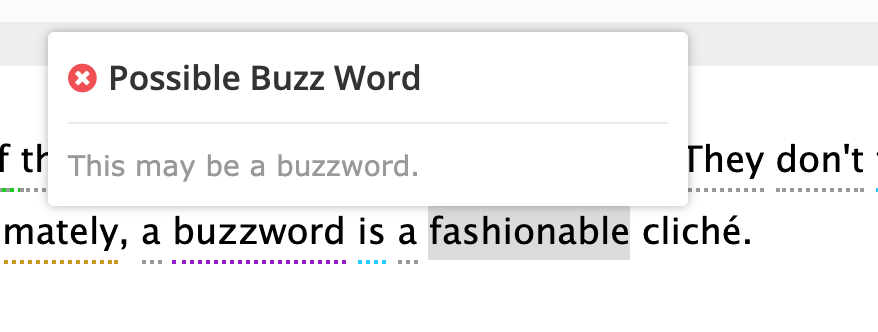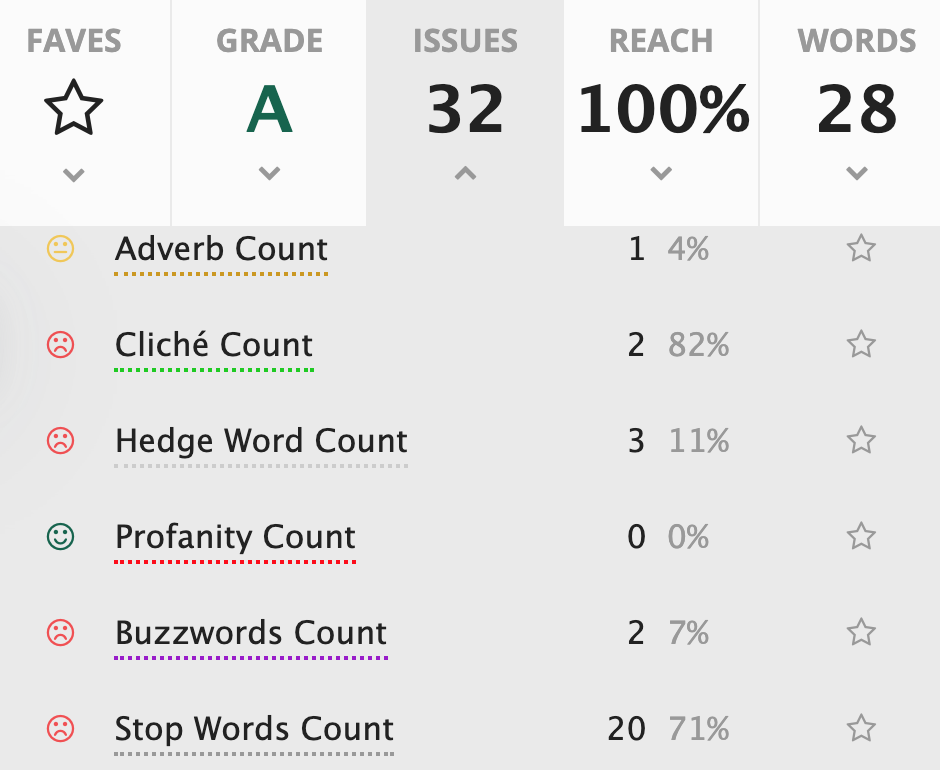There is a fine line between using industry jargon and falling into the trap of buzzwords and clichés. Here’s how to be more mindful of them to improve your writing.
What is a buzzword?
A buzzword is a word or phrase popularised to describe a concept, often in business. They are often timely and go in and out of fashion. Words or terms are invented to replace previous terms that mean the same thing because people tire of them quickly. Whether we like them or not, they’re integral to corporate culture. It’s useful to understand the various phrases that float around; this way, we can avoid using them passively or in the wrong context.
Are buzzwords bad?
There are arguments for buzzwords being both good and bad. Certainly, they aren’t always bad - and sometimes people use the label ‘buzzword’ when it’s actually industry jargon.
To jargon or not to jargon?
Industry jargon can be useful when you’re an insider on an industry topic, rather than writing to the general public. But, if you’re writing for the layperson, you should avoid it.
Buzzwords can be useful in the workplace if they save time. There’s no harm if everybody knows what you’re talking about. And due to their ubiquity, it’s useful to understand buzzwords to be able to engage with coworkers better.
Are buzzwords bad for content?
In content, buzzwords can be obnoxious. Use them with caution. Use the same principle as using adverbs - ask yourself if it’s essential or if it’s there purely for decoration.
Otherwise, you may fall into the common trap of using them gratuitously. Often, this can result in your content looking meaningless. Empty. They can give you a false sense of security that you’re writing with authority - but generally, people can see right through them.
For your content to have the biggest impact, it must be meaningful and authentic. (Ironically, ‘authentic’ has become a common buzzword… so just make sure you use it authentically.)
What are examples of buzzwords?
Predictably, there have been lots of new buzzwords in 2020 due to the global pandemic. The Buzzsaw Awards revealed the effect of COVID-19 on our language this year. It included words and phrases such as:
- Curated
- The new normal
- Reach out
- Ideation
Macmillan Dictionary also reveals ‘infodemic’ is a top buzzword of 2020.
How to use fewer buzzwords and clichés
It’s not always easy to recognise when you’re using them. To make it easier to be more mindful of this, the Readable editor includes buzzword and cliché detection. To ensure these are highlighted in your content, make sure you have these options ticked in your account preferences.
Not a subscriber? Try for free with our demo.

As you can see, Readable has picked up the use of ‘at the end of the day’ as an age-old cliché, so I need to pick a less overused phrase.

Amusingly, ‘buzzword’ is in itself a cliché which has been picked up by the detector.
You can easily view the count in your scoring tabs, under ‘issues’. You’ll want to reduce your number of clichés and buzzwords until you get a green smiley face.

What’s the verdict?
To summarise - buzzwords and clichés are often used in business. They can be a handy way to encapsulate a concept. But they can easily be empty and meaningless in content. By using the Readable buzzword and cliché detectors, you can ensure you’re using words and phrases with substance as well as style.


